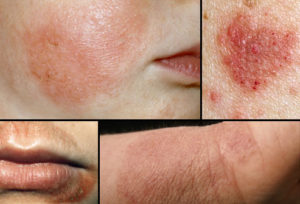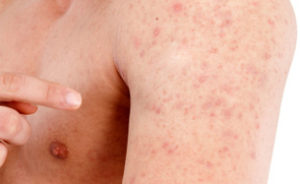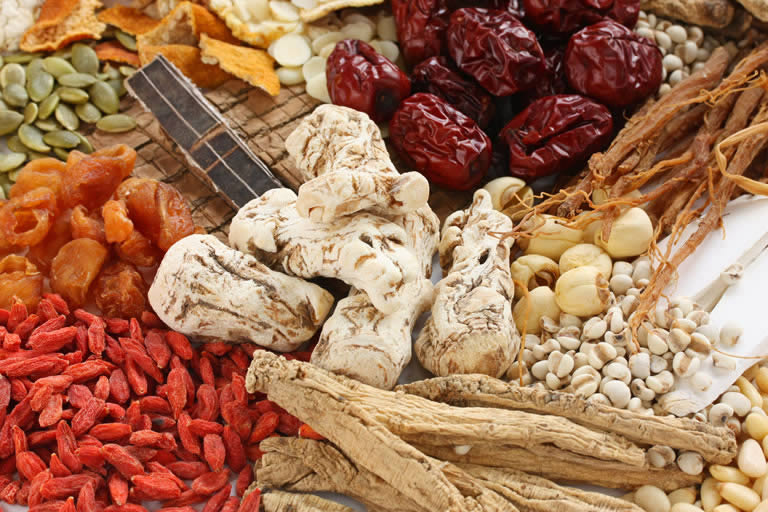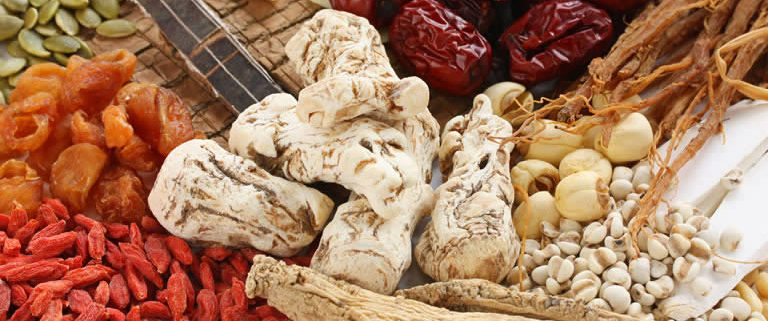Chinese Herbs For Skin Conditions
Chinese medicine is a very effective treatment for skin problems, it can often resolve stubborn skin conditions that Western medicine struggles to treat. The most common conditions treated by Chinese herbal medicine are eczema, psoriasis, seborrhoiec dermatitis and urticaria. Acupuncture and herbs can also help with related skin conditions such as alopecia, chilblains and leg ulcers.
The most widely publicized skin condition that Chinese herbs can treat is eczema. The most common form being atopic dermatitis with its classic itching, redness and dryness especially in the folds of the skin, like the elbows, knees, wrists and eyes. Usually this is an allergic reaction and patients who suffer from this are characteristically “atopic”, they suffer from other allergies such as hay fever or asthma. Finding the cause of the allergy, whether it is a food, body lotion, soap powder or other irritant is the first part of treatment, to stop the condition reoccurring.
The Chinese herbalist’s skill is then in diagnosing which kind of eczema it is, more dry and itchy, thickened skin, crusting, spotting along with other symptoms and work out a specific Chinese herbal formula for that type of eczema and that patient. There are also sub-conditions such as Pompholyx or Dishydrotic eczema, affecting just hands or feet that can respond very well to appropriate Chinese herbal treatment. Stress aggravates and can cause eczema, so a major part of treatment would be stress reducing techniques like acupuncture, breathing and relaxation.

The second most common skin condition treated by Chinese medicine is Psoriasis, one of the scaling disorders. This can range from lots of small spots spread over the body as in guttate psoriasis, to localized thickened round, well demarcated scaly plaques as in plaque psoriasis or psoriasis vulgaris or itchy crusting, thickened skin with small pustules called pustular psoriasis. Psoriasis is an unusual condition that can just come and go of its own accord and does not seem to be linked to allergies. It is classified as one of the autoimmune diseases and at its worst stages can lead to psoriatic arthritis (pain and thickening in the joints) and psoriatic nails, with thickened, flaking, yellow nails which are different from fungal nail infection.
Again, the art of the Chinese herbalist is to diagnose and distinguish between the different forms of psoriasis (and other skin conditions), using Chinese medicine differentiation to find the most appropriate herbal formulas to treat the condition. Often the formula has to change and adapt as the condition changes with treatment. Acupuncture plays a role in treating the pain and immobility of Psoriatic arthritis.
 Seborrhoiec dermatitis should not be overlooked. It is often misdiagnosed, as psoriasis on the scalp and eczema on the body. It can cause extreme dandruff and very itchy skin, especially in the larger folds of the skin (armpits, groin and below breasts) and can cause an unpleasant associated smell if there is a secondary yeast infection as well. Again good diagnosis and appropriate herbs for the severity of the dermatitis as well as its location can improve the condition greatly.
Seborrhoiec dermatitis should not be overlooked. It is often misdiagnosed, as psoriasis on the scalp and eczema on the body. It can cause extreme dandruff and very itchy skin, especially in the larger folds of the skin (armpits, groin and below breasts) and can cause an unpleasant associated smell if there is a secondary yeast infection as well. Again good diagnosis and appropriate herbs for the severity of the dermatitis as well as its location can improve the condition greatly.
Acupuncture is not usually thought of as the first treatment for skin conditions. They respond much better to Chinese herbal medicine. However, certain conditions respond well to the local stimulation of acupuncture.
Acupuncture can stimulate the local growth of hair in the hair-loss condition of alopecia. Using needles to surround the areas of hair loss can stimulate local blood supply and encourage the regrowth of hair. A similar response with leg ulcers and chilblains, acupuncture round the leg ulcers and chilblains and also on other places on the leaps and feet will stimulate poor local circulation and encourage skin regeneration.
There are topical herbs that are used in China, directly on an ulcer to speed up healing, but would be difficult to use in this country, however, there are some very promising studies on the localized effect of Manuka honey in treating skin ulcers, regenerating skin growth and preventing infection.
Chinese medicine, including Chinese herbal medicine, acupuncture and Chinese dietary advice can be effective treatments for common and unusual skin conditions. Years of hydrocortisone, antihistamines and other creams and medicines can be stopped or reduced with a short course of Chinese medicine.
Only plant products can now be used in Chinese herbal formulas. No endangered species or potentially poisonous herbs can be used. Herbs are sourced from CMAS suppliers (Chinese medical association of suppliers) who use high levels of quality control.




